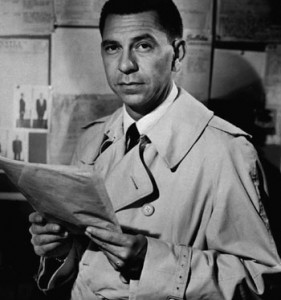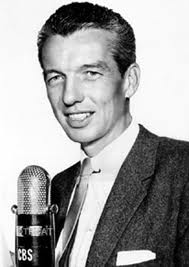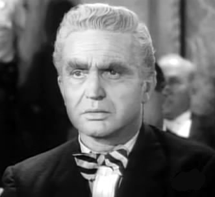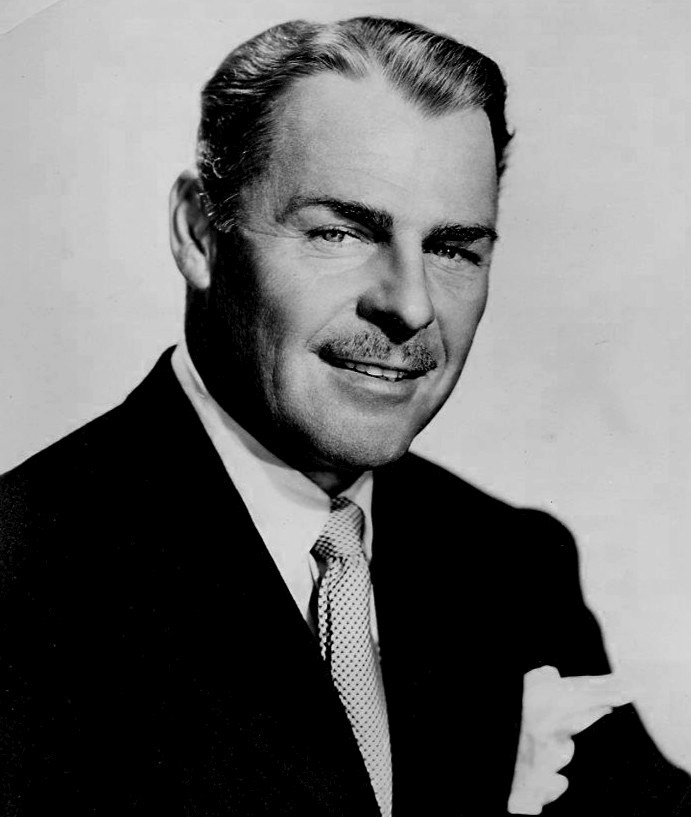In last week’s article, I highlighted TV programs that were not easily accessible due to copyright. Among them was Dante, the series starring Howard Duff as night club operator Willie Dante.
However, after writing the article, I was tipped off that the series was available online. The British company Talking Pictures TV is a television program that features rare old programming and is broadcast in the UK. It runs a website called TPTV Encore where you can access some of its back catalog on-demand. Some of its programming is limited release and is limited to viewers in the UK and Ireland. However, some of its productions are available worldwide, and so as a U.S. viewer, I can watch Dante.
Since I can watch it, I figured I should review it.
Background:
Dante was a recurring feature on Four Star Playhouse, a 1950s Anthology Series. Dick Powell originated the role of Wille Dante, the operator of an illegal gambling room. The eight episodes featuring Dante aired between 1952 and 1956. A YouTube Compilation of all 8 Powell episodes is available to watch here.
In Fall 1960, Dante came to NBC TV with Howard Duff tanking over the role of Willie Dante as Powell was getting older and also moving into more behind-the-camera work.
How to Access:
To access the show, you go to the website and register for free. Once you’re registered, you can click on the “Four Star Productions” link at the top of the page which leads to a whole lot of tantalizing television, much of which isn’t available to stream anywhere else, including episodes of the 1960s cult hits Honey West and Burke’s Law, along with a good number of tantalizing programs that aren’t available for free streaming elsewhere.
The first episode that’s available is entitled “Opening Night.” According to Wikipedia, this is the second episode of the series and if the plot summary is correct, that makes sense. There are some brief commercials before the show starts as well as at least one midroll ad when I watched.
The Plot:
It’s the opening night for Dante’s new San Francisco nightclub, Dante’s Inferno. Dante insists that’s all that’s happening. There’s no gambling. He’s gone strictly legitimate. The police, encouraged by an ambitious DA, don’t buy it, and neither does an ambitious gangster who knows Dante from the old days and is determined to force Dante to make him a partner. If Dante doesn’t, it could lead to a murder, with Dante set to take the fall for it.
Review:
This feels like a proper series opener, as we’re introduced briefly to Dante, given hints about his history as well as meeting his two sidekicks for the series, Alan Mowbry and Tom D’Andrea. Much of the first half of the program is concerned with the District Attorney’s suspicions and establishing the character. Here is a point where the series is betrayed by its half-hour length. There’s not really time to do the sort of introduction the show’s trying to do while also having a crime adventure pop up for Dante in the second half of the program.
Howard Duff’s performance is what ultimately makes the difference. Duff, who is most famous for playing Sam Spade on the radio, is just as capable here. He manages to make Dante a multi-faceted character and portray him as a cool customer who exercises a wry sense of humor while dealing with the inquiries of both the press and overly suspicious police officers, while jumping in as the big man of action in the final minutes of the story.
While the main story resolves, the episode leaves us with key questions, such as whether Dante has really given up illegal gambling and if so, why. The episode leaves viewers wanting to see more, although I don’t know whether these questions will be followed up long-term. Though they may spend too much time on set-up, it does deliver an exciting ending and Duff’s performance makes it a decent watch, and an intriguing start to the series.
Rating: 3.5 out of 5






